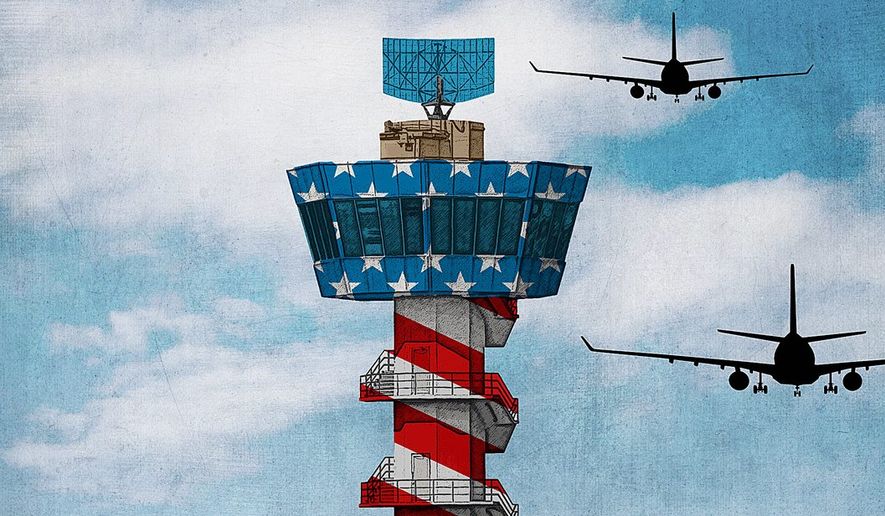OPINION:
Relieving the Federal Aviation Administration (FAA) of its oversight of our nation’s air traffic control (ATC) operations would create significant concerns in both military and homeland security air defense mission areas. House Transportation Committee Chairman Bill Schuster has advocated relentlessly for ATC privatization, drafting and promoting two separate bills outlining the move to privatized control of the busiest airspace in the world. Endorsed by the Trump administration, this move has repercussions beyond the inherent conflict of interest presented by a commercial airline governing board.
The U.S. Department of Defense (DOD) shares critical infrastructure with the FAA. This overlap of resources and equipment makes federal oversight of both entities crucial to operational success and security. Handing over the entire air traffic control enterprise to an entity outside the purview of the FAA will put crucial national defense programs and policies in jeopardy, impacting the execution and efficacy of national defense mechanisms in times of need. The Pentagon has issued statements outlining these concerns, recognizing its reliance on the FAA’s “command and control capabilities in the execution of the National Defense mission.” Military drones, surveillance, navigation, and interoperable communications are all areas of ATC privatization concern for the DOD Policy Board on Federal Aviation. I share these reservations.
While on active duty in the U.S. Army for over 20 years, I saw firsthand the important role of the integrated DOD-FAA airspace management/control system in protecting our homeland. Detection and interdiction of narco-trafficker flights from drug source and transit countries was a major concern in the 1980s. Small aircraft would fly from Colombia and either land or conduct airdrops in Florida. Sharpening domestic airspace surveillance and protection systems drove away this threat. Privatizing airspace control could renew this vulnerability.
As a member of the White House Office of Homeland Security, which was established in the wake of the Sept. 11 terrorist attacks, and as a member of the small team that drafted the initial National Strategy for Homeland Security, I also have direct insight into the potential domestic security risks of the ATC privatization effort. Homeland defense became a more critical mission for our armed forces. This includes protection of our domestic airspace and interdiction of potentially dangerous aircraft. We cannot afford to create potential vulnerabilities in our national air defense system by privatizing vital airspace management and control functions.
Furthermore, commercial airline executives have gone on record indicating they would invest in infrastructure and encourage traffic in our nation’s most profitable regions. Those regions certainly do not include remote areas of our borders with Mexico and Canada. Reducing our ability to monitor and control airspace along our vulnerable borders is not in our national interest.
Federal oversight of every component of our nation’s air traffic ensures the safety and security of airline passengers and our homeland as the whole. It results in continued investments in vital airspace control infrastructure everywhere, not just in areas of commercial interest to airlines. The collaboration between DOD and FAA infrastructure and personnel supports cross-departmental communication that is crucial to timely national security response and thorough surveillance of our nation’s borders. Removing ATC from federal oversight harms the greater aviation apparatus and puts corporate interests before national security. It’s imperative we not let this happen.
• Pancho Kinney, who spent 21 years on active duty in the U.S. Army as an infantry officer and strategic planner, is a former director of strategy at the White House Drug Policy Office and a policy director at the White House Office of Homeland Security.




Please read our comment policy before commenting.